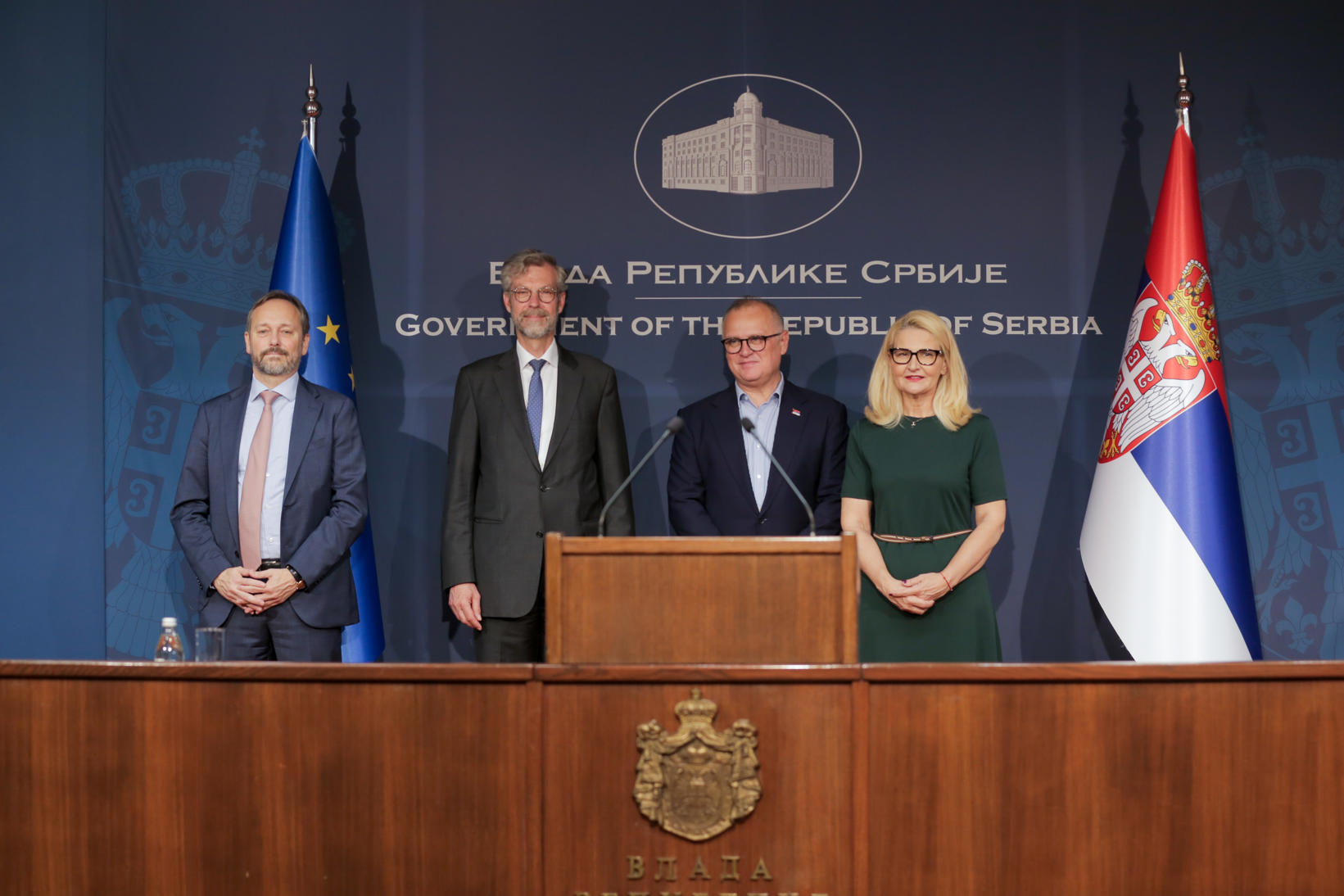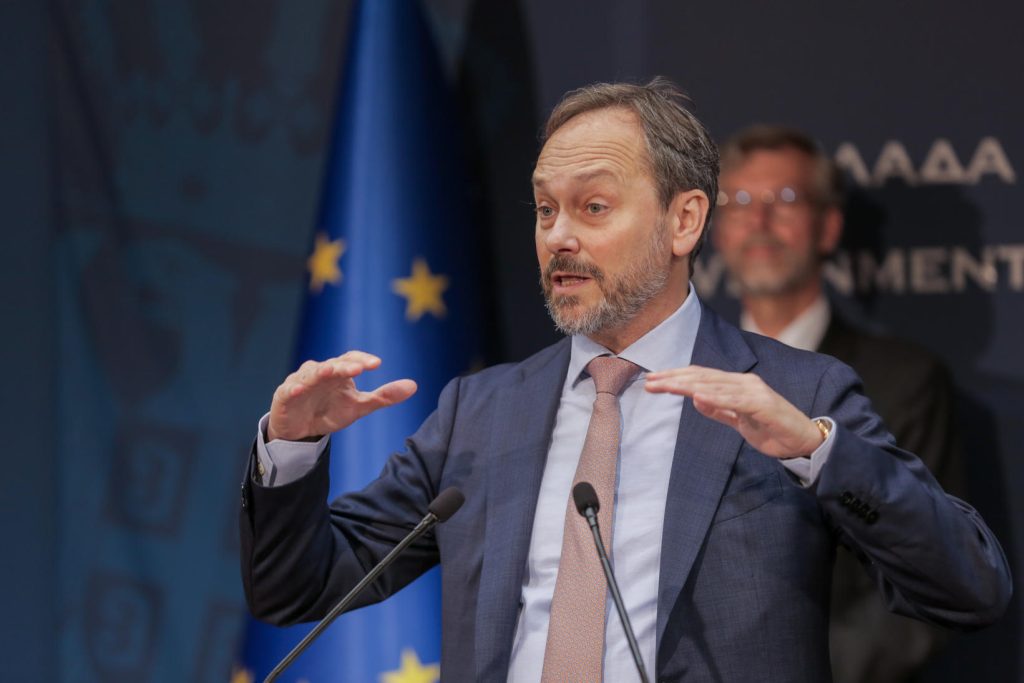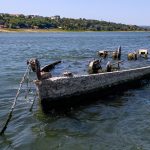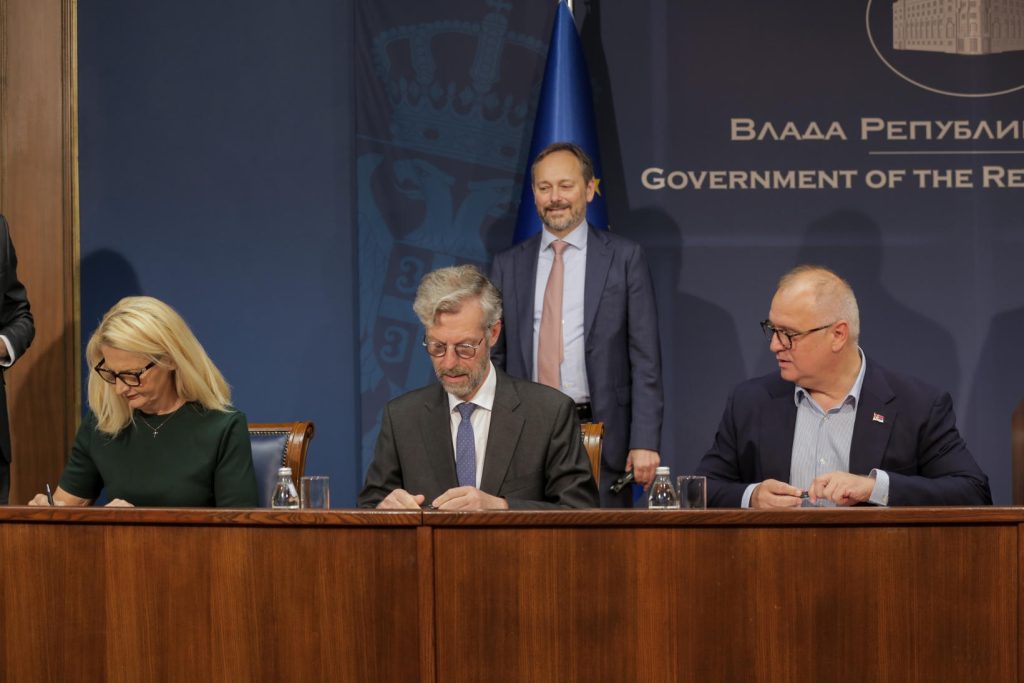Connectivity is EU value that is not abstract but brings direct benefits to citizens and the economy in the form of faster and easier travel, with an emphasis on using modes of transport that have minimal environmental impact. Energy systems are often components of connectivity, and investing in modernization is highly worthwhile. Today’s event at the Government of the Republic of Serbia is an example of the synergy between these two sectors. The removal of sunken vessels from World War II will enable easier river traffic on the Danube, and new smart meters will allow for easier monitoring and lower electricity consumption.
“Today, we signed a grant agreement worth EUR 16 million, – an EU donation to Serbia for the project of Removal of World War II sunken vessels from the Danube in Serbia, located downstream of the Port of Prahovo, at the Djerdap gorge on the border with Romania. This project will improve the navigability of the Danube in Serbia. It will make navigation of the Danube safer, greener, and more efficient, reducing environmental and safety hazards. It is an important project for the Green Agenda too, as it will facilitate the much-needed shift from road to waterway transport. It is a part of the Economic Investment Plan for the Western Balkans, which aims to mobilise up to €30 billion for the region. EU delivers results for the better life for the citizens of Serbia”, said EU Ambassador to Serbia Emanuele Giaufret.
New funds will enable safe, more efficient and reliable navigation conditions throughout the year. Eliminating existing bottlenecks is also essential to accommodate an expected increase in the total volume of cargo, ensure the reliability of the infrastructure and promote a modal shift from roads to waterways, one of the cleanest modes of transport.
“Serbia is now, for the first time, on the right track to resolve its problem with the sunken vessels. Thanks to this project with the EU, the country will be able to remove 21 vessels which are situated on the navigation route. After this, we will consider how to proceed with the extraction of the remaining 200 shipwrecks, as estimated. On behalf of my Ministry, I would like to thank the EU for the grant received today. I would like to emphasize this, as the EU remains the only partner to Serbia that provides this kind of support, which we perceive as a sign that the EU sees Serbia as its future member and part of the single European market”, Minister of Construction, Transport and Infrastructure Goran Vesić stated.
“Modal shift opportunities from road to inland waterway transport will be enhanced. Not only will this accelerate the transport of goods, but it will also help protect the environment by reducing greenhouse gas emissions, as water transport will be used much more than it is now. In this way, this technically and financially demanding project – a joint undertaking of Serbia and the European Union – will achieve the goal for which it was begun: to bring significant benefits to the economy and people of Serbia, as well as to the region and Europe as a whole”, Minister of European Integration Tanja Miščević said.
At the same event, a signing ceremony was organized for an €80 million loan with Elektrodistribucija Srbije d.o.o. (EDS), Serbia’s electricity distribution company, to replace obsolete electromechanical metering devices with around 400,000 smart meters. As part of a wider electricity grid modernisation programme, the installation of new smart meters will help the distribution system operator reduce electricity losses, improve collection rates and facilitate the integration of renewables in the near future.
The project will be co-financed by the European Bank for Reconstruction and Development (EBRD), with contributions from the EU budget as part of the Energy Support Package for the Western Balkans, which was adopted in 2022 to enhance energy security in the region.
“Today’s signatures are a testimony to the EIB’s commitment to enhancing sustainable connectivity in Serbia, in line with the EIB’s role as the EU climate bank and the country’s green transition goals. The investments will benefit people in Serbia by providing more reliable and efficient transport and energy infrastructure and will also support the country’s and the region’s economic growth,” said EIB Vice-President Robert de Groot.
“Today we have signed an €80 million loan agreement with the European Investment Bank to replace 400 000 existing meters and install new ones that use the most advanced technology. This will help to reduce electricity losses and meter reading errors and lead to more efficient consumption management and the easier integration of renewable energy sources in our country. The European Union has already donated €110 million for the installation of over half a million new meters, and we plan to replace most of the existing meters by the end of the decade. We need to make sure our distribution system uses the latest technology to ensure a safer and better supply of electricity for all our people”, Minister of Mining and Energy Dubravka Đedović Handanović said.
From 2000 to this day, EU support to the transport sector in Serbia has reached more than EUR 550 million in grants. In addition, more than EUR 50 million of EU grants have been set aside for the preparation of strategic priority investments in the field of transport, with a total value exceeding EUR 5 billion, which will be realized as a combination of EU grants and favorable loans in the future. The EU is the largest donor to Serbia in the energy sector, having invested over one billion euros in grants since 2000. The EU funds projects in Serbia aimed at supply security, energy source diversification, market liberalization, and improving energy efficiency.
Read more:
EU for Safer Navigation of the Danube
More than 150 Thousand Smart Meters Installed with EU Support









